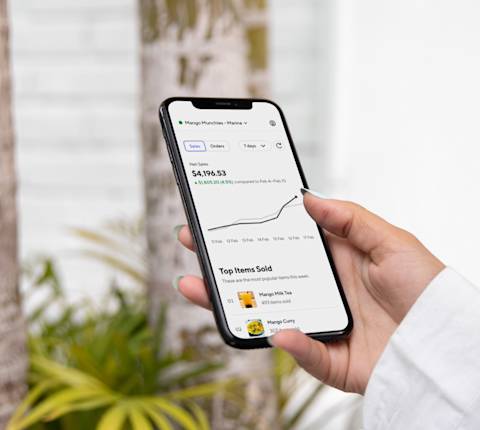This article provides an overview of marketplace facilitator laws and their impact on tax responsibilities, specifically focusing on how these regulations affect restaurants that partner with DoorDash, how that impacts different jurisdictions, the remittance of different types of sales taxes, and the implications for merchant payouts and tax reporting.
What is a marketplace facilitator?
In general terms, a marketplace facilitator is a platform like DoorDash that connects buyers and sellers to help facilitate the sale of various goods and services, including food, drinks, groceries, and other retail items.
How do marketplace facilitator laws impact tax?
In some jurisdictions, there are laws that change the party that is responsible for remitting tax on sales made between buyers and sellers on a marketplace facilitator’s platform. These laws shift the responsibility for tax remittance from merchants to DoorDash, as the marketplace facilitator. In these jurisdictions, listed below, DoorDash remits directly to the tax authorities the provincial sales tax (PST) and retail sales tax (RST) on the merchant’s sales made through the DoorDash platform. The only exception is the Saskatchewan PST on liquor sales, which DoorDash always passes to merchants. DoorDash also always passes to merchants the goods and services tax (GST), harmonized sales tax (HST), and Quebec sales tax (QST) collected on merchant’s sales made through the DoorDash platform.
In which jurisdictions does DoorDash remit tax directly to the tax authorities as a marketplace facilitator?
Effective September 1, 2022, DoorDash is registered to collect and remit British Columbia provincial sales tax (PST) directly to the tax authorities as a marketplace facilitator on orders made through the DoorDash platform for all merchants. Effective August 1, 2022, DoorDash is registered to collect and remit both Manitoba retails sales tax (RST) and Saskatchewan PST directly to the tax authorities as a marketplace facilitator on orders made through the DoorDash platform for all merchants.
How do the marketplace facilitator laws affect my payouts?
Merchant payouts for sales made in jurisdictions listed above will not include subtotal PST and RST for those sales because DoorDash collects the subtotal PST and RST from the customer and remits the subtotal PST and RST directly to the tax authorities. The only exception is the Saskatchewan PST on liquor sales, which DoorDash always includes in merchant payouts.
Where can I view the tax that DoorDash passed to me or remitted directly to the tax authorities for my orders?
Merchants can view the tax that DoorDash passed to merchants or remitted directly to the tax authorities in various reports.
To view a breakdown of which taxes were passed to merchants or remitted directly to the tax authorities for each order, see the Transactions report:
Subtotal Tax Passed to Merchant (Federal/Harmonized): This is the subtotal GST/HST (as applicable) that DoorDash collected from the customer and passed to the Merchant.
Subtotal Tax Passed to Merchant (Provincial): This is the subtotal PST/RST/QST (as applicable) that DoorDash collected from the customer and passed to the Merchant.
Subtotal Tax Remitted By DoorDash (Provincial): This is the subtotal PST/RST (as applicable) that DoorDash collected from the customer and remitted directly to the provincial tax authorities.
To view the PST/RST that DoorDash remitted directly to the tax authorities for each order, see the Transactions report, column “Tax Remitted by DoorDash to Province”.
To view the PST/RST that DoorDash remitted directly to the tax authorities for each payout, see the Payouts report, column “Tax Remitted by DoorDash to Province”.
Please see this How to Utilize DoorDash Reporting to download Transactions and Payouts reports from the Merchant Portal.
Do the marketplace facilitator laws affect GST, HST, or QST?
No. The marketplace facilitator laws do not currently affect GST, HST, or QST. DoorDash always passes to merchants the GST, HST, and QST collected on merchant’s sales made through the DoorDash platform.
For which DoorDash products will DoorDash collect and remit PST/RST directly to the tax authorities as a marketplace facilitator?
In jurisdictions where DoorDash is required to collect and remit tax as a marketplace facilitator, DoorDash will collect and remit PST and RST directly to the tax authorities on applicable sales facilitated in the jurisdictions listed above for Marketplace, Self-Delivery, Flexible Fulfillment, and Online Ordering. DoorDash does not collect and remit tax directly to the tax authorities for Drive On-Demand.
Who is responsible for setting tax rates on my menu items?
DoorDash is responsible for setting PST and RST rates on merchant menu items in the jurisdictions listed above. Please see this Help Article to learn how tax rates are determined.
Merchants are responsible for setting GST/HST/QST rates on merchant menu items in all jurisdictions. For more information, head to How to Update the Tax Rates of Your Menu Items and Store.
How does the process differ for point-of-sale (POS) integrations?
There is no difference in tax payouts and tax remittance for POS integrations. DoorDash continues to handle all tax calculations where applicable. Merchants with POS integrations can access the Merchant Portal for reporting information. For more information, head to How to Update the Tax Rates of Your Menu Items and Store.
Can DoorDash send a letter to me confirming that DoorDash remits tax directly to the tax authorities for my store?
Yes, please contact DoorDash Merchant Support to submit a request.
How should I report my taxes?
DoorDash is unable to provide tax or legal advice. DoorDash recommends that merchants contact a tax professional.
What if I’m located in the United States, Australia, or New Zealand?
For information on the marketplace facilitator laws in the United States, please see the US marketplace facilitator guide. Australia and New Zealand do not have marketplace facilitator laws that impact sales made through the DoorDash platform. Merchants in Australia and New Zealand are responsible for remitting all tax on sales made through the DoorDash platform.
This was an overview of marketplace facilitators, their operational effects, and how this may impact your taxes. For a deeper understanding of these changes and their impact on your business, DoorDash encourages you to consult with tax professionals.
Still have questions? Check out How to Access and Understand Your Tax Invoices or contact DoorDash Merchant Support.



